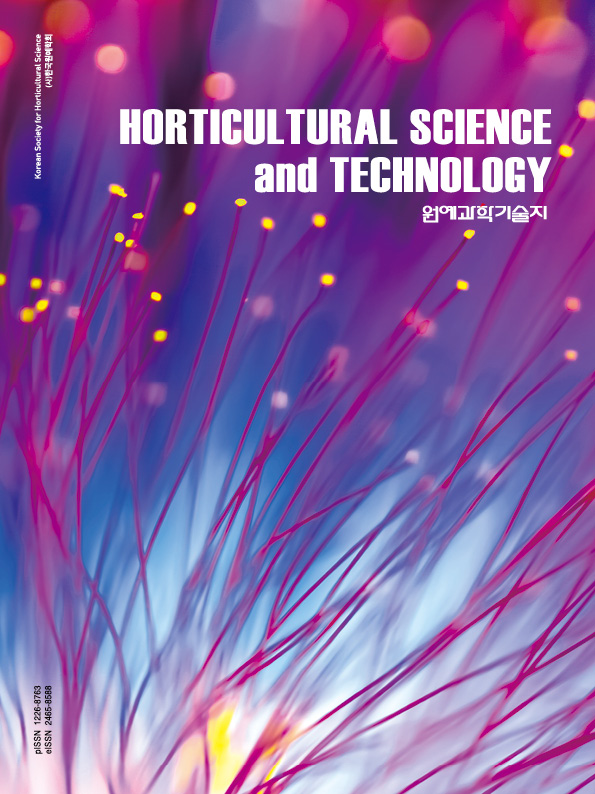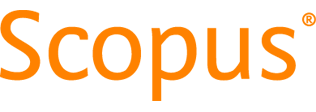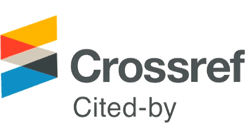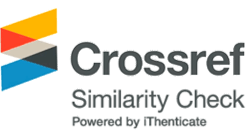Publishing Policies
Research and Publication Ethics
Competing interests
Korean Journal of Horticultural Science & Technology requires authors to declare all competing interests in relation to their work. All submitted manuscripts must include a ‘competing interests’ section at the end of the manuscript listing all competing interests (financial and non-financial). Where authors have no competing interests, the statement should read “The authors have declared that no competing interests exist.” Editors may ask for further information relating to competing interests. Editors and reviewers are also required to declare any competing interests and will be excluded from the peer review process if a competing interest exists.
Competing interests may be financial or non-financial. A competing interest exists when the authors’ interpretation of data or presentation of information may be influenced by their personal or financial relationship with other people or organizations. Authors should disclose any financial competing interests but also any non-financial competing interests that may cause them embarrassment if they were to become public after the publication of the article.
Financial competing interests include (but are not limited to):
– Receiving reimbursements, fees, funding, or salary from an organization that may in any way gain or lose financially from the publication of the article, either now or in the future.
– Holding stocks or shares in an organization that may in any way gain or lose financially from the publication of the article, either now or in the future.
– Holding, or currently applying for, patents relating to the content of the manuscript.
– Receiving reimbursements, fees, funding, or salary from an organization that holds or has applied for patents relating to the content of the manuscript.
– Non-financial competing interests
– Non-financial competing interests include (but are not limited to) political, personal, religious, ideological, academic, and intellectual competing interests. If, after reading these guidelines, you are unsure whether you have a competing interest, please contact the Editor.
Authors from pharmaceutical companies, or other commercial organizations that sponsor clinical trials, should declare these as competing interests on submission. They should also adhere to the Good Publication Practice guidelines for pharmaceutical companies, which are designed to ensure that publications are produced in a responsible and ethical manner. The guidelines also apply to any companies or individuals that work on industry-sponsored publications, such as freelance writers, contract research organizations and communications companies. Korean Journal of Horticultural Science & Technology will not publish advertorial content.
Human and animal rights
All research must have been carried out within an appropriate ethical framework. If there is suspicion that work has not taken place within an appropriate ethical framework, Editors will follow the Misconduct policy and may reject the manuscript, and/or contact the author(s)’ institution or ethics committee. On rare occasions, if the Editor has serious concerns about the ethics of a study, the manuscript may be rejected on ethical grounds, even if approval from an ethics committee has been obtained.
Research involving human subjects, human material, or human data, must have been performed in accordance with the Declaration of Helsinki and must have been approved by an appropriate ethics committee. A statement detailing this, including the name of the ethics committee and the reference number where appropriate, must appear in all manuscripts reporting such research. If a study has been granted an exemption from requiring ethics approval, this should also be detailed in the manuscript (including the name of the ethics committee that granted the exemption). Further information and documentation to support this should be made available to Editors on request. Manuscripts may be rejected if the Editor considers that the research has not been carried out within an appropriate ethical framework. In rare cases, Editors may contact the ethics committee for further information.
If a study has not been submitted to an ethics committee prior to commencing, retrospective ethics approval usually cannot be obtained and it may not be possible to consider the manuscript for peer review. How to proceed in such cases is at the Editor(s)’ discretion.
Authors reporting the use of a new procedure or tool in a clinical setting, for example as a technical advance or case report, must give a clear justification in the manuscript for why the new procedure or tool was deemed more appropriate than usual clinical practice to meet the patient’s clinical need. Such justification is not required if the new procedure is already approved for clinical use at the authors’ institution. Authors will be expected to have obtained ethics committee approval and informed patient consent for any experimental use of a novel procedure or tool where a clear clinical advantage based on clinical need was not apparent before treatment.
Informed consent
For all research involving human subjects, informed consent to participate in the study should be obtained from participants (or their parent or guardian in the case of children under 16) and a statement to this effect should appear in the manuscript.
For all manuscripts that include details, images, or videos relating to individual participants, written informed consent for the publication of these must be obtained from the participants (or their parent or legal guardian in the case of children under 16) and a statement to this effect should appear in the manuscript. If the participant has died, then consent for publication must be sought from the next of kin of the participant. This documentation must be made available to Editors on request, and will be treated confidentially. In cases where images are entirely unidentifiable and there are no details on individuals reported within the manuscript, consent for publication of images may not be required. The final decision on whether consent to publish is required lies with the Editor.
Experimental research on vertebrates or any regulated invertebrates must comply with institutional, national, or international guidelines, and where available should have been approved by an appropriate ethics committee. The Basel Declaration outlines fundamental principles to adhere to when conducting research in animals and the International Council for Laboratory Animal Science (ICLAS) has also published ethical guidelines.
A statement detailing compliance with relevant guidelines (e.g. the revised Animals (Scientific Procedures) Act 1986 in the UK and Directive 2010/63/EU in Europe) and/or ethical approval (including the name of the ethics committee and the reference number where appropriate) must be included in the manuscript. If a study has been granted an exemption from requiring ethics approval, this should also be detailed in the manuscript (including the name of the ethics committee that granted the exemption and the reasons for the exemption). The Editor will take account of animal welfare issues and reserves the right to reject a manuscript, especially if the research involves protocols that are inconsistent with commonly accepted norms of animal research. In rare cases, Editors may contact the ethics committee for further information.
For experimental studies involving client-owned animals, authors must also document informed consent from the client or owner and adherence to a high standard (best practice) of veterinary care.
Field studies and other non-experimental research on animals must comply with institutional, national, or international guidelines, and where available should have been approved by an appropriate ethics committee. A statement detailing compliance with relevant guidelines and/or appropriate permissions or licences must be included in the manuscript. We recommend that authors comply with the Convention on the Trade in Endangered Species of Wild Fauna and Flora and the IUCN Policy Statement on Research Involving Species at Risk of Extinction.
Authors are strongly encouraged to conform to the Animal Research: Reporting In Vivo Experiments (ARRIVE) guidelines, developed by the National Centre for the Replacement, Refinement and Reduction of Animals in Research (NC3Rs), for reporting animal studies.
For studies reporting livestock trials with production, health and food-safety outcomes, authors are encouraged to adhere to the Reporting Guidelines for Randomized Controlled Trials in Livestock and Food Safety (REFLECT).
For the policies on the research and publication ethics not stated in this instructions, International standards for editors and authors (https://publicationethics.org/node/11184) can be applied. If a published paper of this journal is found to be against publication ethics and publication malpractice, the paper and the authorship are handled in accordance with the ethical rules of the Korean Society of Horticultural Science.

 Horticultural Science and Technology
Horticultural Science and Technology








